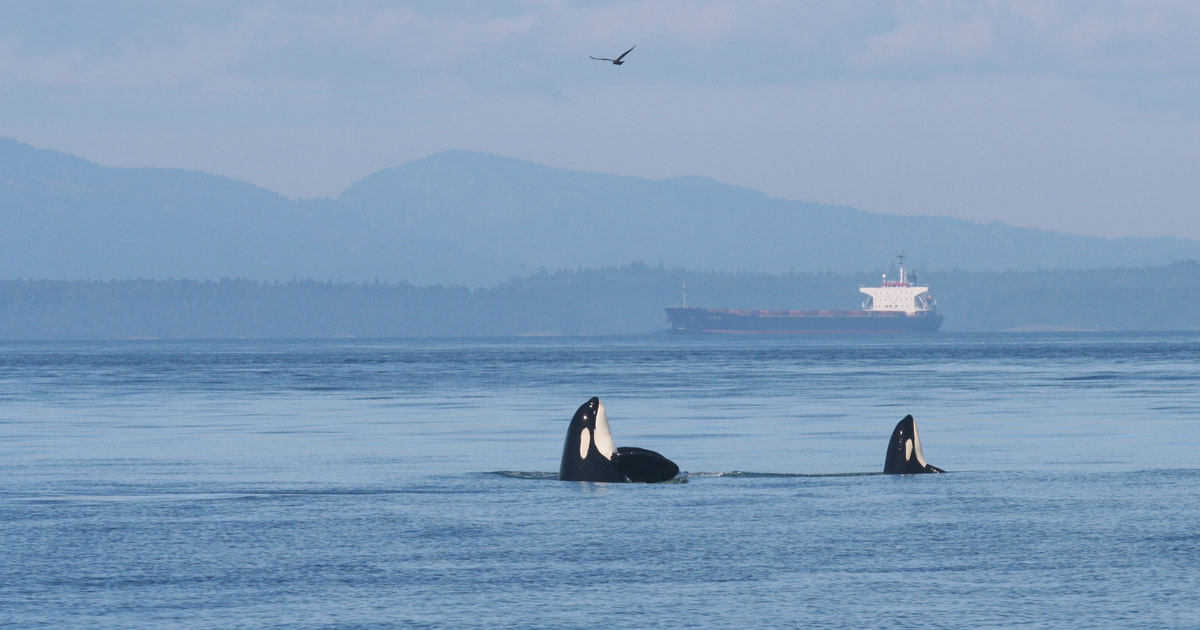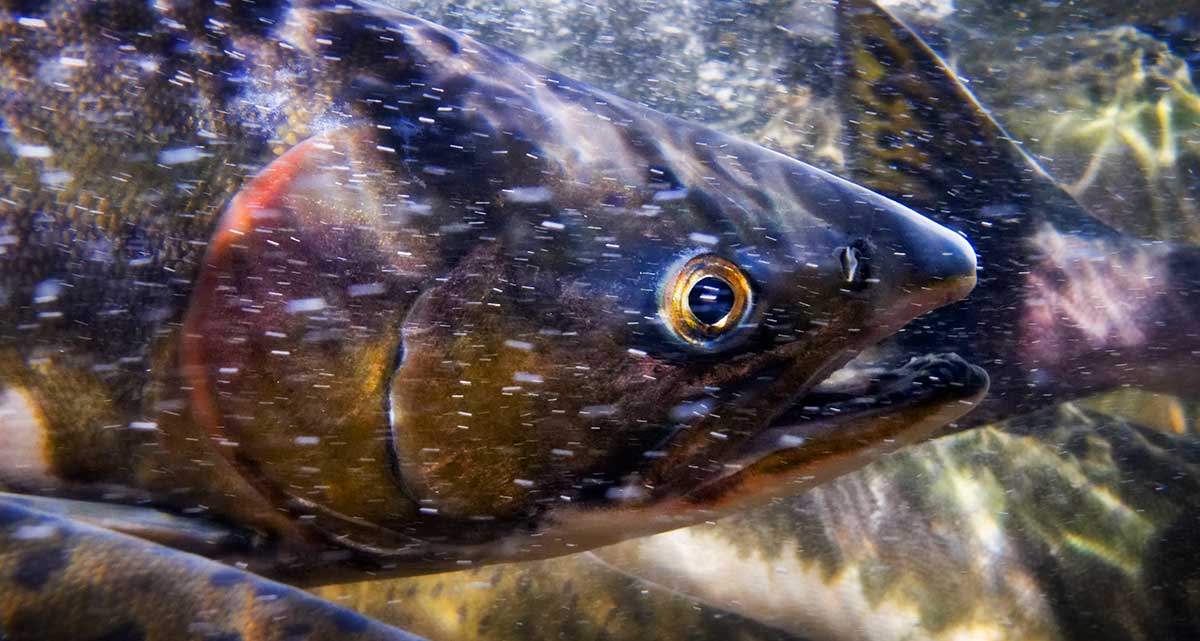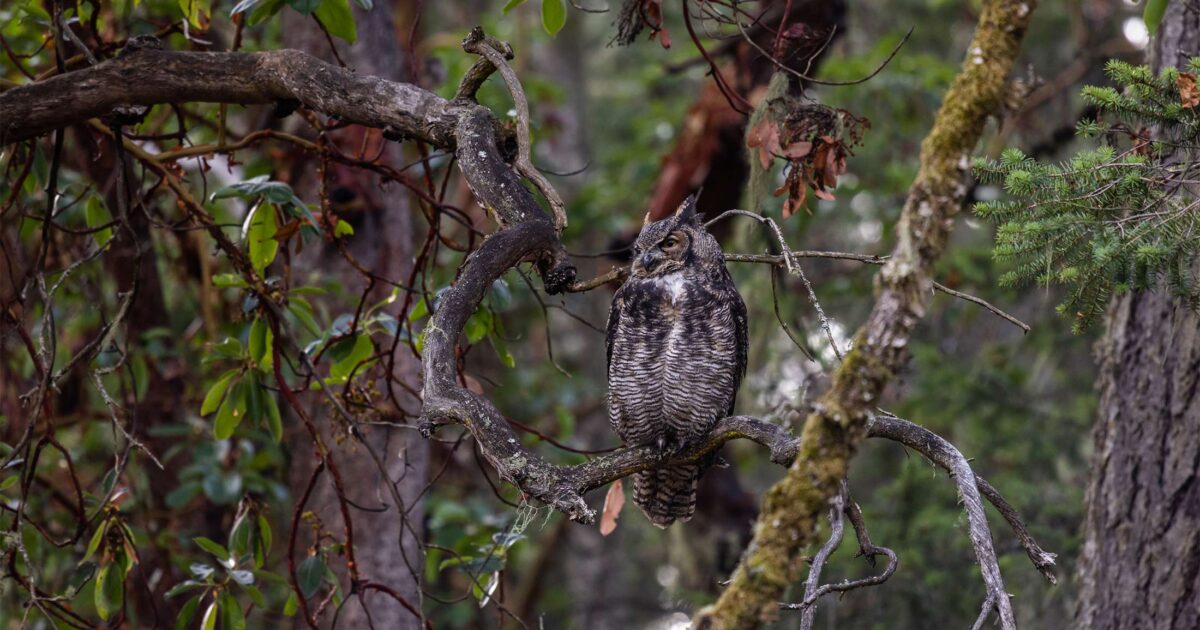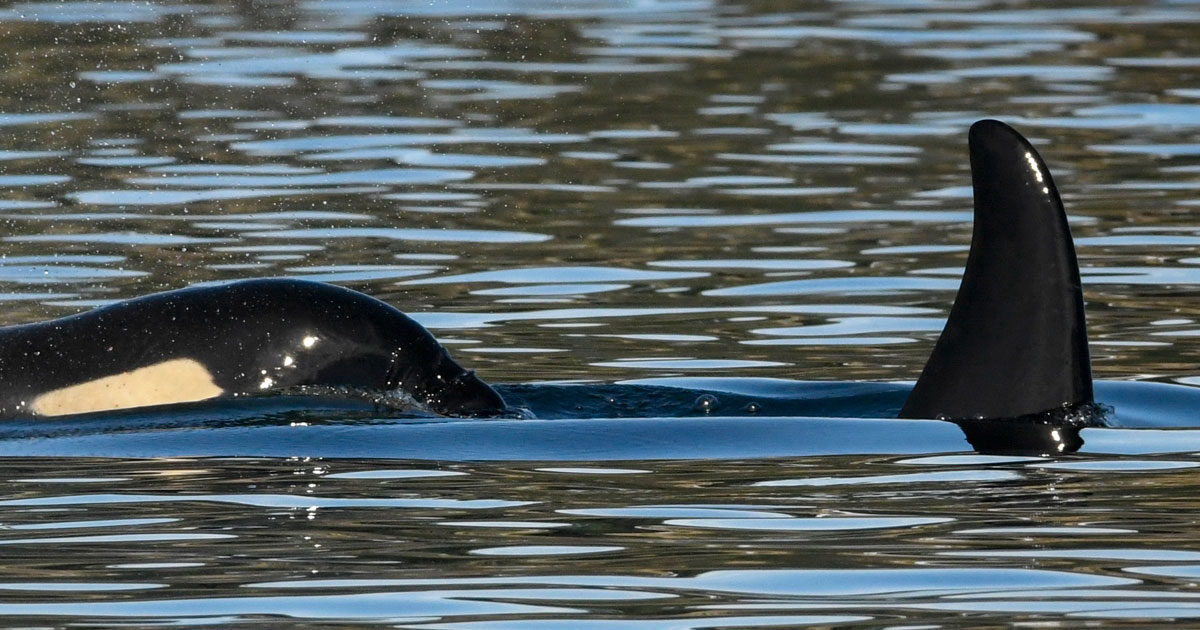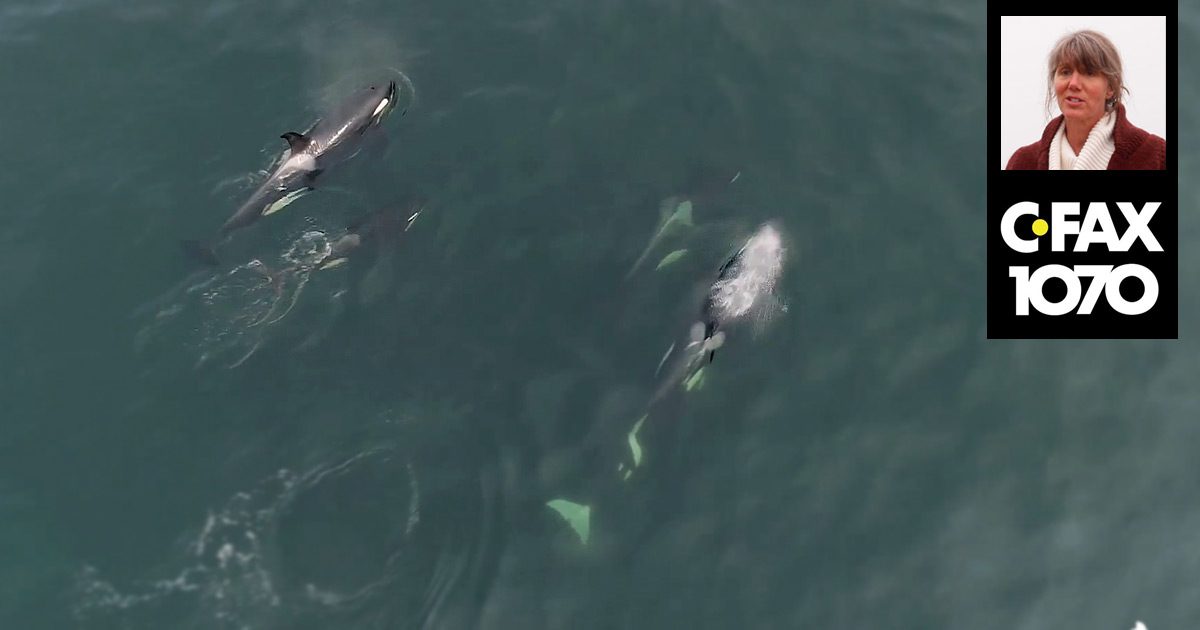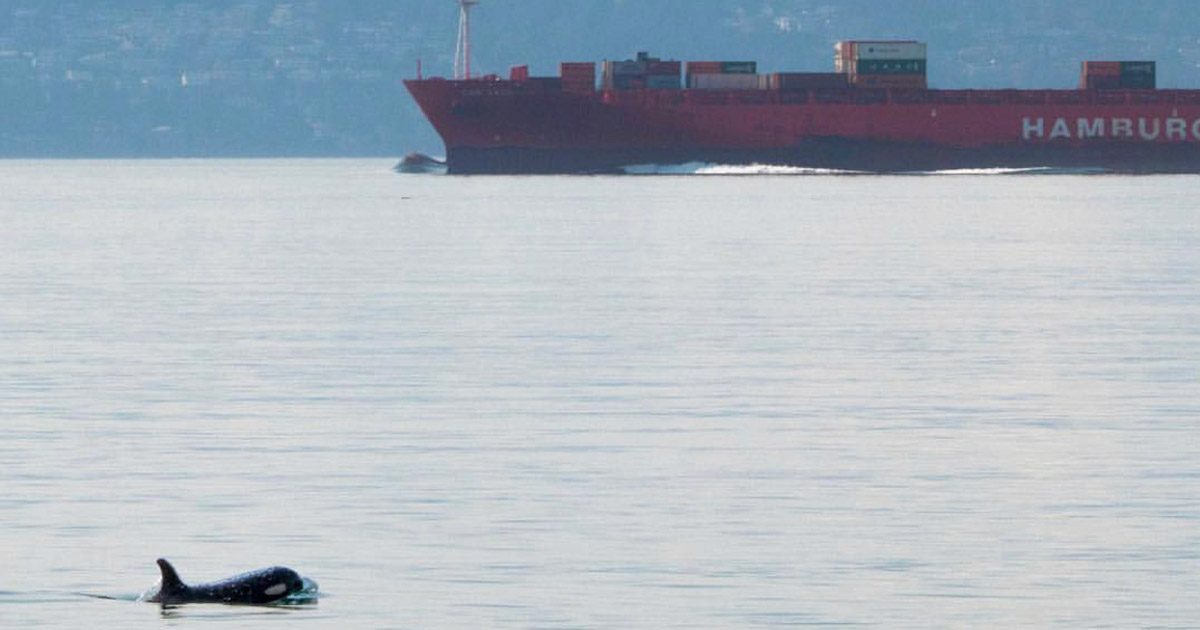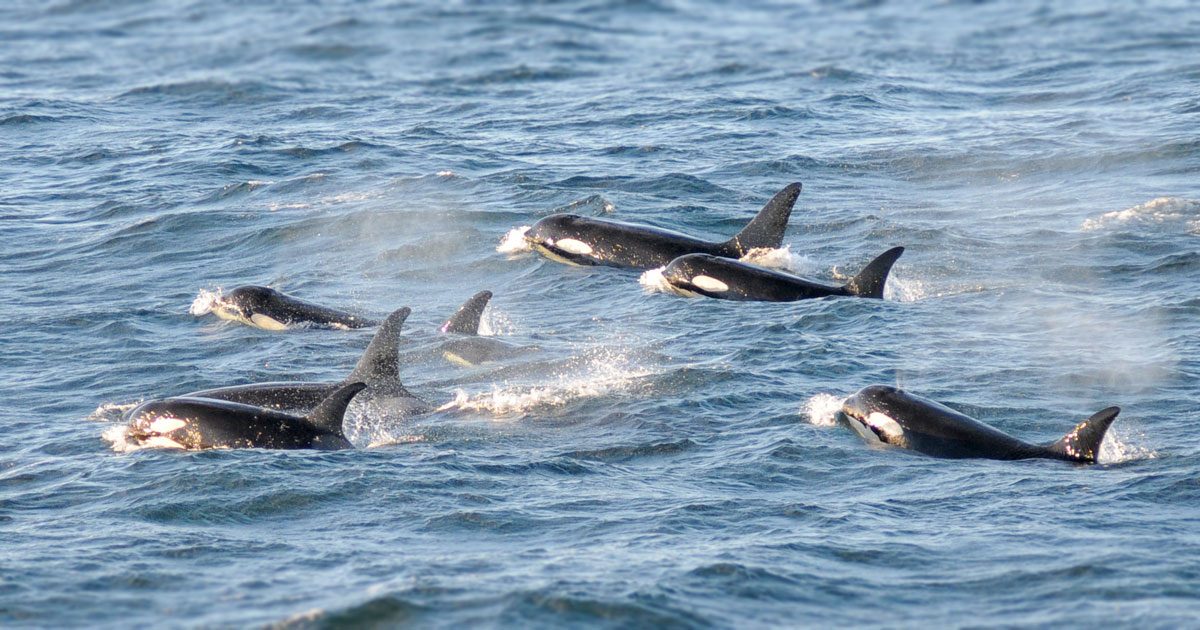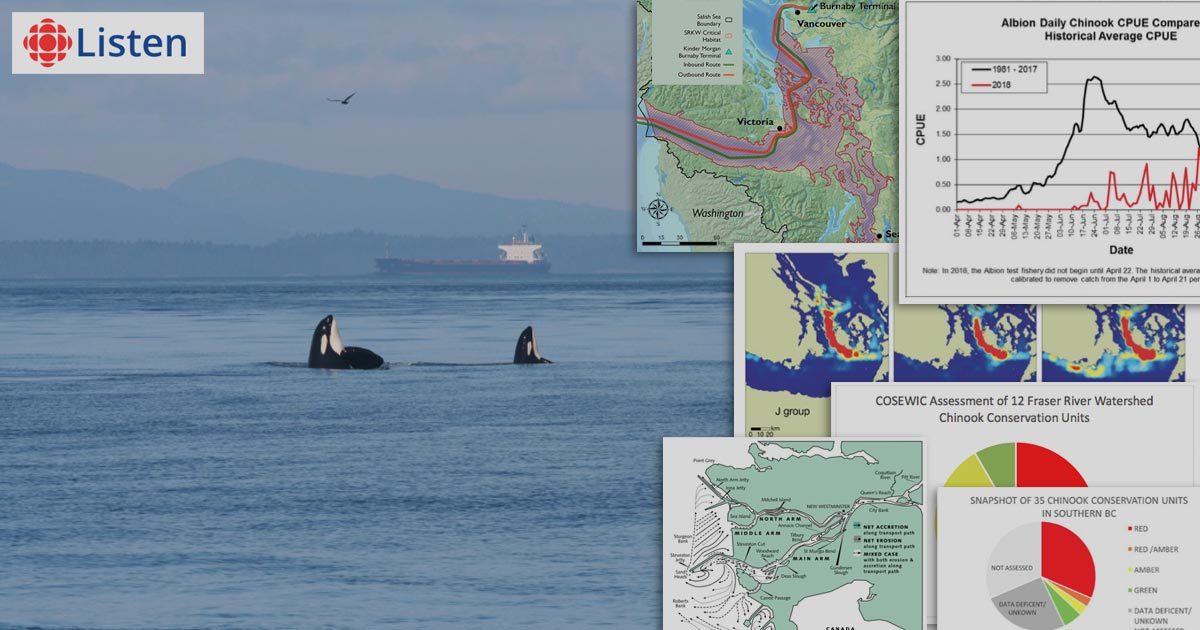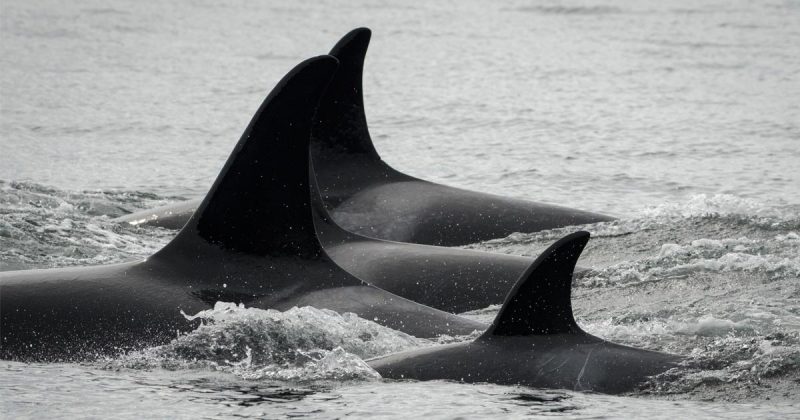Trans Mountain: tar sands oil to and from our coast
The Canadian government is pushing to expand the Trans Mountain Pipeline between Edmonton and Vancouver, and then export its oil via tanker from Burrard Inlet to Asia. The existing and expanded proposal would deliver 890,000 barrels of tar sands oil per day to Vancouver. Oil storage capacity at Burnaby would triple, adding 14 new tanks to store another 3,900,000 barrels. The pipeline would cross more than 500 streams in the Fraser River watershed. Tanker visits would increase by 574% above 2010 levels to more than 400 oil-laden trips through Burrard Inlet, the Fraser estuary, the Gulf Islands, Haro Strait and Juan de Fuca Strait, every year.
Raincoast’s most recent video summarises the threat from oil tankers to Southern Resident killer whales. Importantly, even if the project goes completely according to plan, with no oil spills and no ship strikes, the increased noise alone from more than 800 tanker transits annually (in and out) significantly increases their risk of extinction. When cumulative effects are considered, these whales face more than 50% chance of functional extinction within the next century.
[video_embed][/video_embed]
All Raincoast’s evidence submitted to the NEB can be reached at the government website here.
Raincoast is an intervener in the National Energy Board hearings
Raincoast is an intervener in the National Energy Board’s (NEB) review of Kinder Morgan’s Trans Mountain proposal. We are legally represented by Ecojustice in these hearings. As an intervenor, we review and question Kinder Morgan’s application to construct and operate the project. Importantly, we also submit expert evidence on our own scientific findings about project impacts. Raincoast’s focus is on wildlife. We concentrate on highly vulnerable species where our assessments yield different conclusions from Kinder Morgan’s; we also present relevant information not provided to the NEB by Kinder Morgan. Below are our Information Requests (IRs) and our evidence submitted to the NEB on May 27, 2015.
Final NEB Arguments
Raincoast submitted its final arguments to the National Energy Board in mid-January and presented its final oral arguments on January 26, 2016. You can
- download our final written arguments here,
- watch the video of our oral summary arguments here, and
- download written final legal summary here.
Evidence submissions to the NEB
Raincoast filed 4 expert submissions to the NEB on our concerns for salmon, killer whales and forage fish. A summary is available here: Statement of Written Evidence of the Raincoast Conservation Foundation. Detailed reports are found in 1-4.
1. Southern Resident Killer Whales: Population Viability Analysis
Southern resident killer whales are endangered under Canada’s Species at Risk Act. Trans Mountain’s tanker route transects critical habitat necessary for their survival and recovery. This submission describes a Population Viability Analysis (PVA) conducted by leading scientists studying killer whales, acoustics and endangered populations. A PVA can assess risks to wildlife populations and evaluate the likely effectiveness of recovery options. This PVA assessed the viability of the southern residents in light of their cumulative disturbances and threats, including increased ocean noise resulting from additional vessel traffic and oil spills. It also examined the role of Chinook salmon abundance and contaminants. The Southern Resident population has experienced almost no population growth over the past four decades, and has declined in the last two decades. Our analysis shows that the Trans Mountain Project will intensify existing threats, accelerating their rate of decline and possibly leading to complete extinction. Conversely, reducing existing vessel noise and increasing Chinook availability increases their likelihood of long term survival.
Download the pdf RCF- SRKW PVA for NEB -May 2015
2. Southern Resident Killer Whales: Acoustic disturbance from vessel traffic
Southern resident killer whales are endangered under Canada’s Species at Risk Act. Trans Mountain’s tanker route transects critical habitat necessary for their survival and recovery. This submission describes the importance of sound to killer whales (as important as vision is to humans) and the concern for even more noise in their critical habitat. Southern resident killer whales produce and listen to sounds in order to establish and maintain critical life functions: to navigate, find and select mates, maintain their social network, and locate and capture prey (especially Chinook salmon). The existing level of noise has already degraded critical habitat and studies suggest it has reduced the feeding efficiency of these whales. The Trans Mountain Project will increase noise levels with adverse affects to southern resident killer whales.
Download the pdf RCF – SRKW acoustics-NEB
3. Wild Salmon of the Fraser River and Salish Sea: The risk from oil spills
The Fraser River and its estuary is one of the most productive salmon watersheds in the world and the most economically important in Canada. The proposed pipeline and tanker route traverse and transect vital salmon habitat. This submission examines the potential consequences to Fraser River salmon populations from exposure to oil spilled from a pipeline rupture in the lower Fraser River or from an oil tanker spill in the waters of Georgia Strait. The Lower Fraser, its tributaries, and its estuary are used by 42 fish species throughout the year either for incubating eggs and embryos, as juveniles for rearing and overwintering, and as adults for migration and spawning. For salmon, the Lower Fraser River acts as a bottleneck through which the entire diversity of Fraser River salmon populations must pass twice during their lifetime. There is no safe time of the year when the impacts of a spill would be low. A spill during peak migration of unique Conservation Units or at risk species could be devastating to these populations.
Download the pdf RCF – Salmon-NEB-May 2015
4. Forage fish of the Salish Sea: The risk from oil spills and tankers
Forage fishes are crucial components of coastal marine ecosystems. This submission examines the potential impacts from Trans Mountain oil tankers and spills on Pacific herring and other forage fishes. Situated in the mid-trophic levels, they represent a vital link between the bottom and the top of the marine foodweb and support a diversity of predators, including humpback whales, Chinook salmon and seabirds. As such impacts to forage fishes have the potential to cause cascading consequences to the broader ecosystem, including species at risk. Trans Mountain’s review of forage fish suffered from information and methodological deficiencies, failed to assess all avenues for potential harm, and failed to identify the potential for project-related impacts on forage fish to result in negative consequences to the surrounding ecosystems.
Download the pdf RCF-Herring-NEB-May 2015 (PDF)
Information Requests (IRs) and other NEB exchanges
IR No 1 from Raincoast to Kinder Morgan – A3W7J7 (PDF)
Response No 1 from Kinder Morgan to Raincoast
Notice of Motion for full and adequate responses to Round 1 IRs
IR No 2 from Raincoast to Kinder Morgan- C214-15-3 (PDF)
Response No 2 from Kinder Morgan to Raincoast A4H9C0 (PDF)
Letter to Kinder Morgan Notice of Motion outstanding evidence – A4J3E7
IR No 1 from Raincoast to Fisheries and Oceans Canada
Other information & materials
Our threatened coast: Nature and shared benefits in the Salish Sea
Raincoast’s latest report demonstrates how the value of the region’s biological diversity –its plants and animals- reflect our values, have shaped our cultural identity, and are linked to economic benefits in the billions of dollars. We encourage decision makers and residents of the Salish Sea to fully consider what is at stake from a host of proposed coastal energy and shipping projects.
Directly Affected
With the public participation in the NEB review of the Kinder Morgan expansion restricted, Directly Affected seeks to provide a voice to those left out, in the form of a short documentary.
Take Action
Learn how you can Take Action to help stop the spread of oil in the Salish Sea. [clear]
Support our work to prevent Kinder Morgan’s Expansion Project

